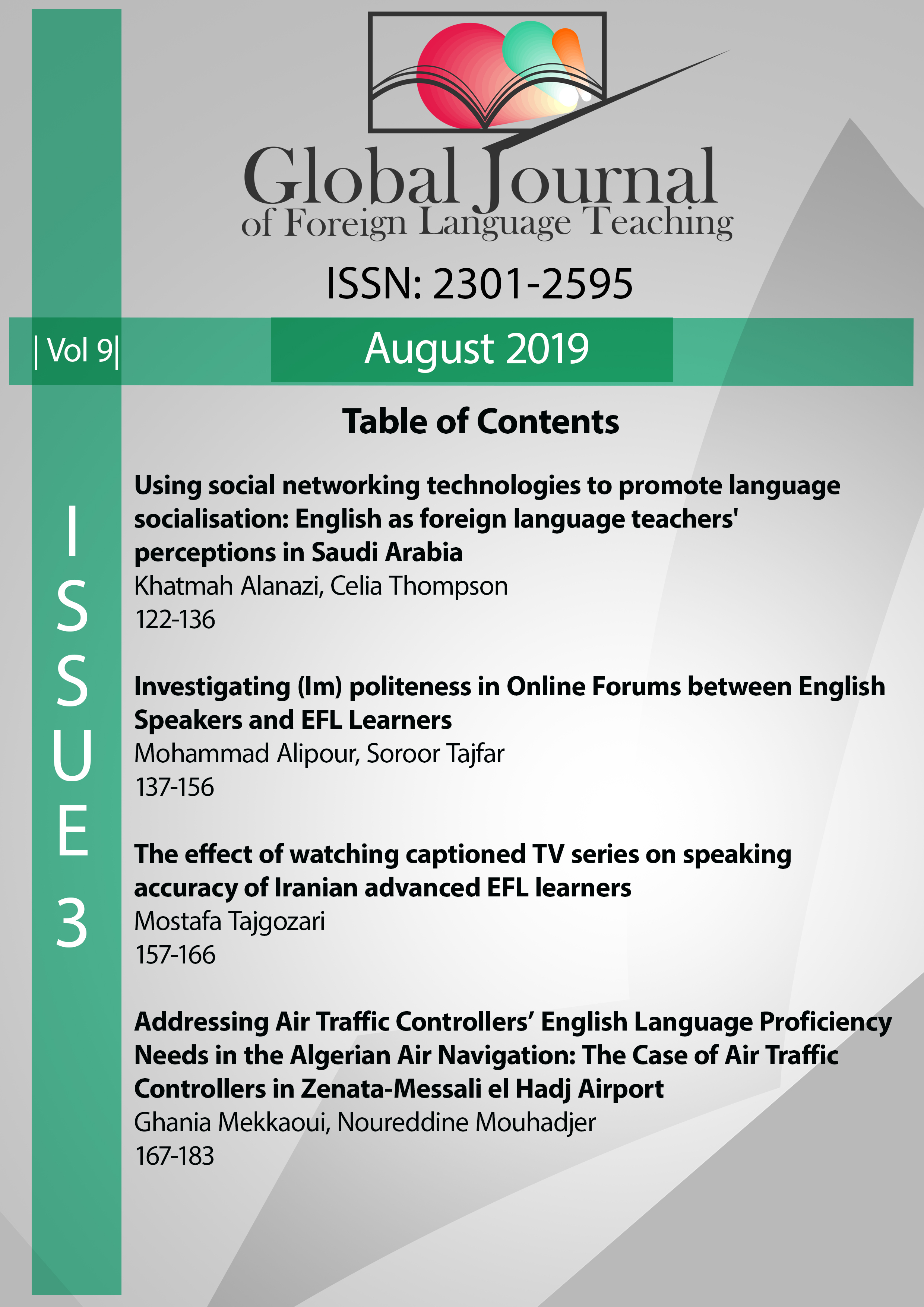Addressing air traffic controllers’ English language proficiency needs: Case of Zenata Airport
Main Article Content
Abstract
The current paper is a contribution to the field of ESP in aviation industry in an Algerian context. It was conducted in Zenata –Messali el Hadj Airport. It was a case study research that is intended to explore the English language deficiencies and problems Algerian air traffic controllers may face in their work, as well as to identify their lacks, needs and wants. To overcome their difficulties a needs identification and analysis was conducted thanks to various instruments: interviews, a questionnaire, classroom observation. The results indicated that all informants involved in the current research were aware of the importance of the English language in aviation industry, as low proficiency in this language might lead to misunderstanding, and dangerous situations. Air traffic controllers reveal their need to develop their language proficiency namely in speaking and listening skills with special focus on vocabulary and grammar. To conclude English language is important in aviation industry. A good mastery of this language helps avoid misunderstanding and keep aviation safety. Thus, Algerian air traffic controllers need to enhance their English language ability thanks to appropriate English courses and well trained ESP teachers.
Keywords: ESP; English Language Proficiency; Air Traffic Controllers; English for Aviation.
Downloads
Article Details
- Authors retain copyright and grant the journal right of first publication with the work simultaneously licensed under a Creative Commons Attribution License that allows others to share the work with an acknowledgement of the work's authorship and initial publication in this journal.
- Authors are able to enter into separate, additional contractual arrangements for the non-exclusive distribution of the journal's published version of the work (e.g., post it to an institutional repository or publish it in a book), with an acknowledgement of its initial publication in this journal.
- Authors are permitted and encouraged to post their work online (e.g., in institutional repositories or on their website) prior to and during the submission process, as it can lead to productive exchanges, as well as earlier and greater citation of published work (SeeThe Effect of Open Access).
